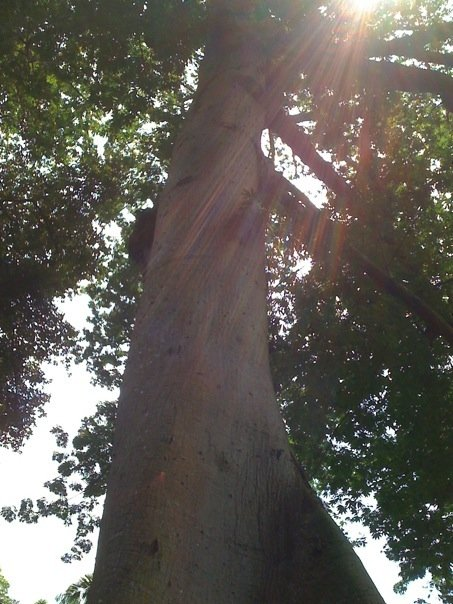Hi Everyone,
I hope you had a relaxing and fulfilling Christmas and Boxing day, I had a very pleasant time, just about the right balance of sociability, good food and quiet reflection!
With the new year approaching I my thoughts have been turning (like many people) to what I would most like to focus on during 2012. I write the article below on the question of “Can meditation help you find your life’s purpose?” with this somewhat in mind.
Next week sees the return of regular weekly classes in Singapore, in particular the weeklyQi gong meditation class restarting on the 4th January.
Wishing you all the best for your new year celebrations!
Yours in the spirit of new beginnings,
Toby
 Article of the Week:
Article of the Week:
Can Meditation Help You Find Your Life’s Purpose?
One way or another, and for a variety of different motives, many people feel that finding their ‘life’s purpose’ is very important to them. What I want to do in this article is to outline three levels of purpose in life, and then give a few comments regarding how meditation may be able to help people to find their life’s purpose on these different levels.
These three levels of purpose move from ‘basic’ indicating the least evolved (but still perfectly valid), to the intermediate, to advanced, ‘advanced’ in this context meaning advanced from the perspective of meditation and the path to enlightenment.
The three levels of life’s purpose are:
1) The Basic Level – Survival and acceptance:
Here survival means accumulating enough material resources for a basically happy life, and developing enough social competence to build successful, lasting, mutually supporting friendships and family bonds (and thus acceptance into your ‘tribe’). Here meaning in life is found in living it, and the experience of living successfully and happily within the context of one’s society. For a person on this level meditation can help calm their mind enough to facilitate greater awareness of the choices they have to make, and greater intelligence and control to make sure they are able to direct their behavior and appetites appropriately, so that they are not sabotaging their resource building and relationship efforts all the time. On this level meditation will also help them to enjoy the fruits of their labor, and appreciate the good things in their life as they are able to live more ‘in the present’.
2) The Intermediate Level – Personal achievement and working for the greater good:
On this level two principle things come online; firstly joy in personal achievement (combined with a certain level of ambition, some of this egotistic, some more altruistic), and secondly an expansion of our scope and motivation. We evolve from our life being mainly about ourselves and our family to wanting to make a real, genuine, positive and lasting contribution to society and the world. Our life begins to center around the question ‘What is it in particular that I can offer the world?’
On the first level of personal achievement, meditation helps us in a similar way to the basic level by helping us to optimize our awareness, intelligence and consistency, thus giving us the mental strength to accomplish our goals. On the second level of motivation and scope, regular meditation naturally makes our mind bigger and more open, opening it up to empathy and awareness of both others and the world around us and facilitating the natural development of genuine love and compassion.
Another major way in which meditation helps us at this stage is the opening of our intuition, guiding us toward work and activity that will be of most meaning and consequence.
3) The Advanced Level – Doing Nothing, Going Nowhere:
On this last and most advanced level, the search for a “meaning” in life is dropped as we realize the inherent perfection of each and every moment of our life as it is already, right now. On this level we are able to recognize that the idea of a ‘personal purpose’ and meaning to our life is ultimately both illusory and already fully manifest. Life is perfect as it is and has no meaning other than its own natural, moment to moment self fulfillment.Zen practices such as the practice of aimlessness and thoughtlessness are aimed at realization of this level of our life’s purpose, as is the Tibetan Dzogchen practice of ‘hopelessness’ (meaning if you are hoping for a life meaning to manifest in the future for you, then you will never be able to realize that it is here with you right now!!!).
In Conclusion
I have outlined three levels of life’s meaning here, one thing I would like to flag up is thatyou can’t move onto the advanced level of ‘doing nothing going nowhere’ without having developed high levels of competency at the first two levels, basic and intermediate. There are a lot of people whose life has no meaning at all, and who are doing nothing about it and thus going nowhere in the negative sense of the word and this is not at all desirable! Thinking advanced meditation teachings and practices are an excuse to be a lazy so and so, and to avoid the basic day to day challenges in your life is a complete illusion! All of these three levels can and should be grown and developed together as we go through our life and develop our meditation practice.
© Toby Ouvry 2011, you are welcome to use or share this article, but please cite Toby as the source and include reference to his website www.tobyouvry.com


